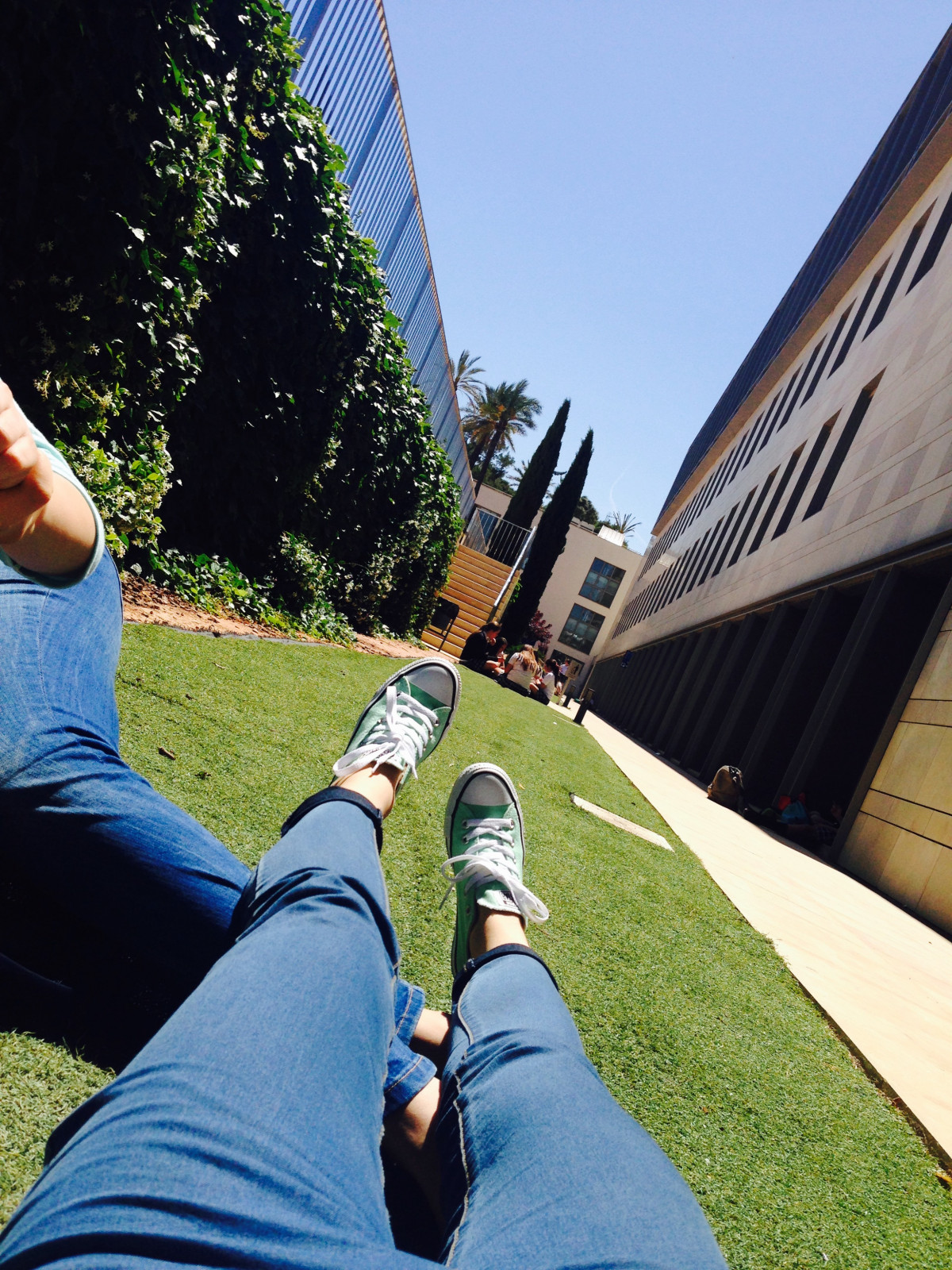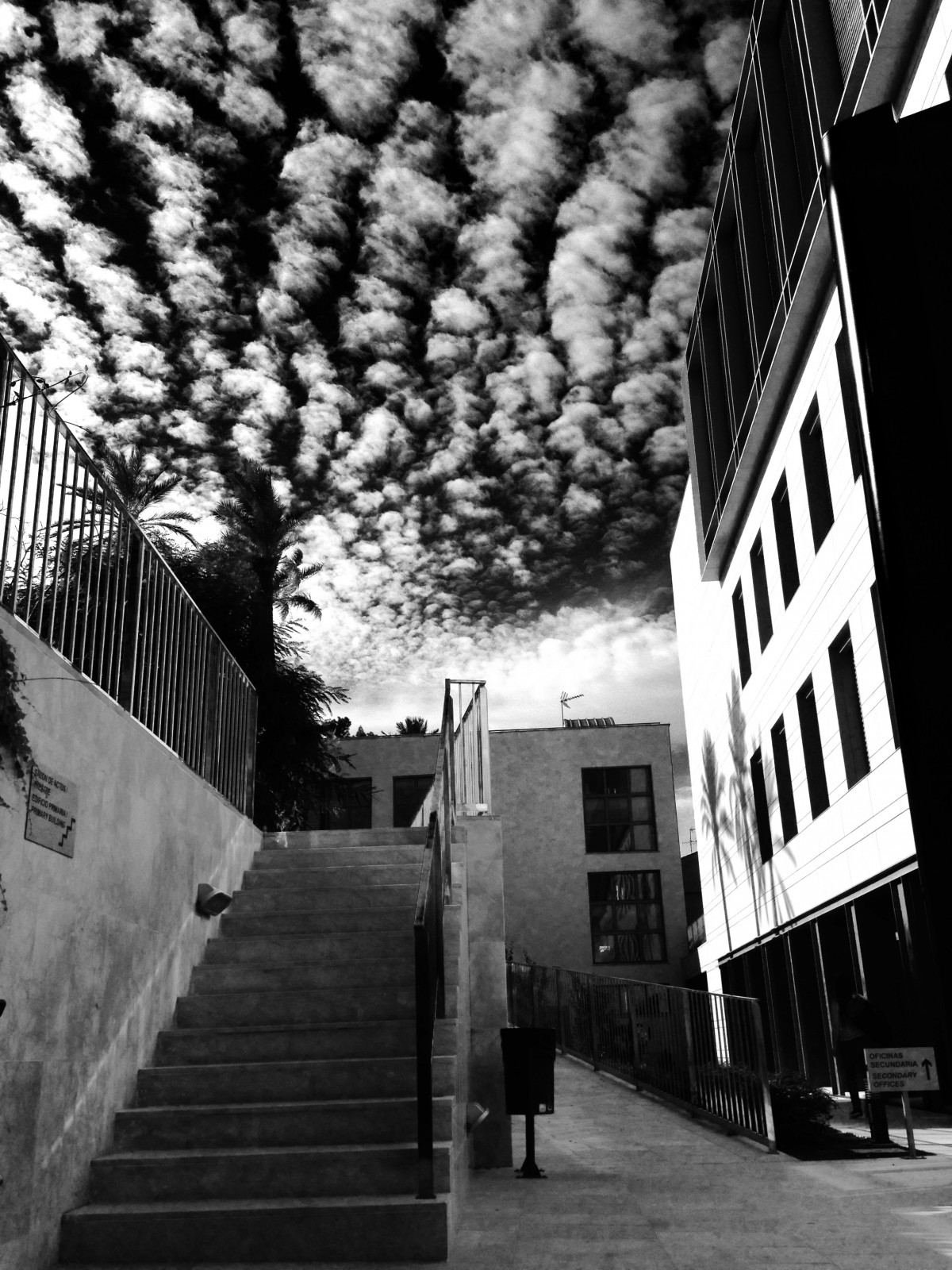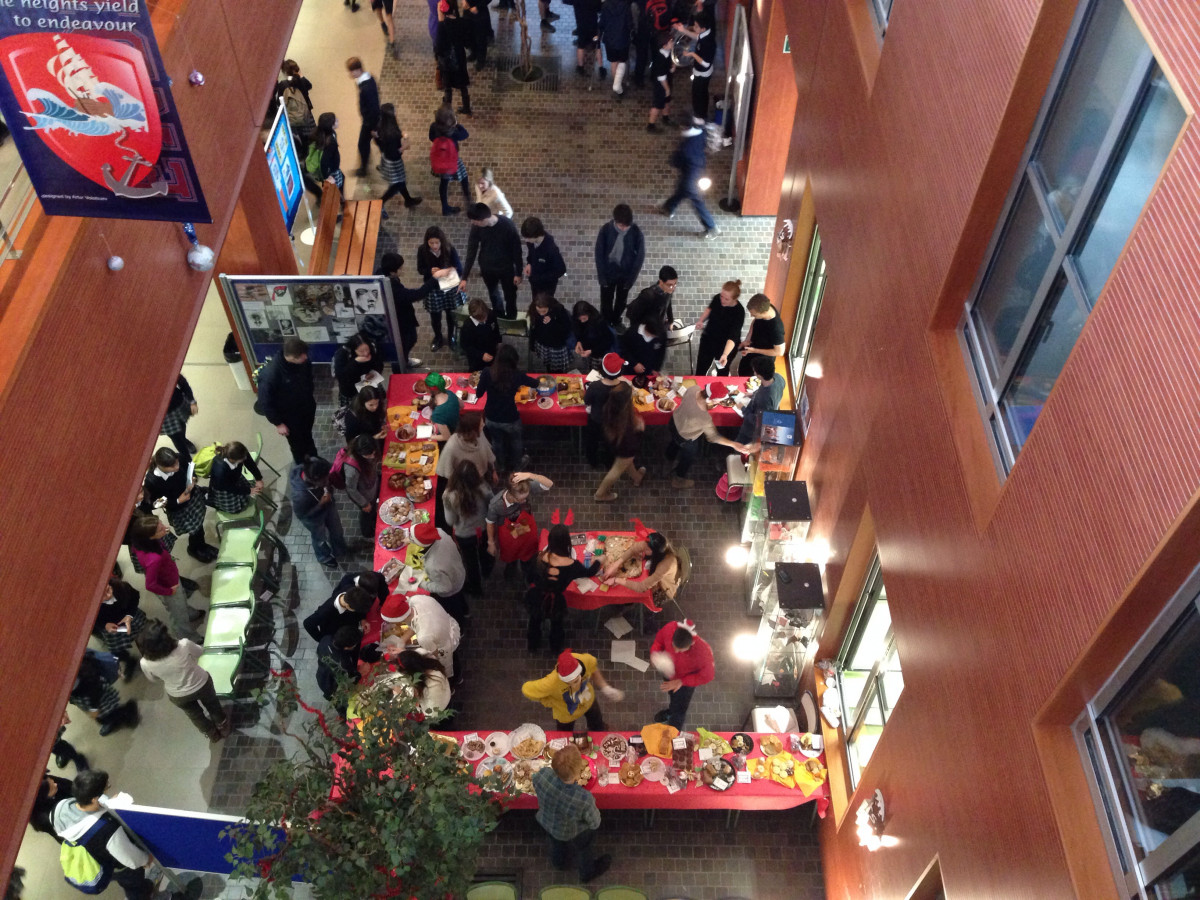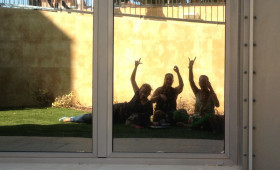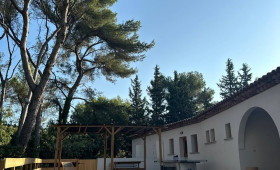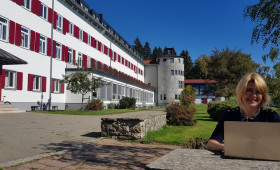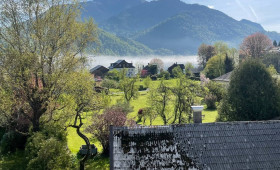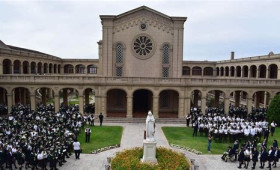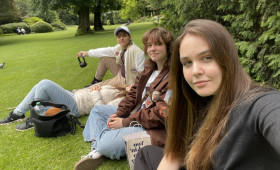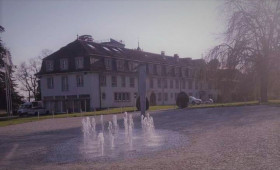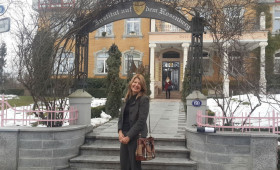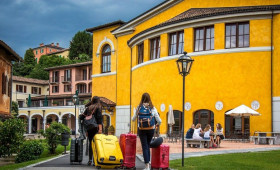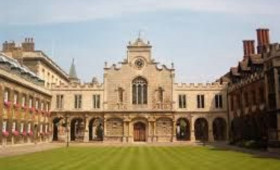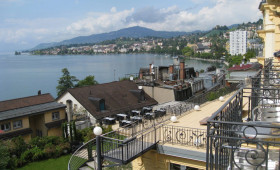Interview with a student of Caxton College
03.10.173180
British school in Spain

A very detailed interview with a high school student Polina, who has studied at the British school Caxton College for four years.
The private British school in Valencia, Caxton College, is one of the most prestigious schools in Spain, offering its students bilingual education: in addition to studying according to the British system (a wide range of subjects under the International GCSE program), all students must study the Spanish language and culture of Spain. Students who successfully pass the IGCSE exams can continue their studies in either the British A-level program or prepare for entry into Spanish universities by taking half of the subjects in Spanish.
Caxton College is a boarding school, but not in the usual sense. In order to integrate into Spanish culture, foreign students are placed in a boarding house with Spanish host families who speak English enough to communicate with new students who may not know Spanish upon arrival.
To tell my readers what a British school abroad is, and asked Polina, who has been studying at Caxton College for the fourth year and is finishing school this year and going to university.
Caxton College from the first-hand

L: Polina, I understand that after four years, you feel very comfortable at this school. However, tell me how it all began for you.
P: In Kyiv, I studied 8 classes in one of the schools in the center. One of the college requirements for admission was a trip to the college itself, an interview and of course an entrance test. In February 2011 we flew to Valencia to take tests, see the college grounds and get a feel for the local atmosphere. As I realized upon arriving at the college itself and meeting with the leaders, the most important thing is the desire to be part of this large family, to be an enthusiast and to show all of my most positive qualities. As for the knowledge of languages, you need a good level of English, not in terms of the fact that you need to know all the terms in every subject, it is enough to understand and be able to express yourself. Honestly, I have never had any problems with languages, especially English, so it was very easy for me to write all the required exams for admission.
Knowledge of the Spanish language is not at all necessary; upon admission, the test for knowledge of the Spanish language is not even given.
In addition to English, I wrote a test in mathematics and sciences - a subject where chemistry, biology and physics are studied together. I was admitted only because of my good level of English. A couple of days after passing all exams at Caxton, I was offered two options: either I could enter the CISC class, which they began to recruit in the same year that I entered (this is a preparatory program where only foreign students are located: students are given more time, the classes are much smaller than the regular ones and the curriculum focuses on the study of languages, both Spanish and English). Or in the 10th grade of college, for the IGCSE program.
I was immediately told that it would be better to go to the 10th grade since I have good English and I am suitable for age. For a long time I could not understand why, at the age of 14, children in college went to the 10th grade, and not the 9th, as in Kyiv. It turned out that the entire educational system differs from the Ukrainian one. Since this is a British college, students graduate after 13 years of study instead of 11. But the funny thing is that I graduate from college a year later than I would have finished school in Kyiv, despite the fact that I missed the 9th grade.
L: What did you study on the IGCSE program - which subjects were compulsory and which ones could you choose? How is studying at Caxton College different from studying at your Ukrainian school?
P: As I mentioned above, it is very difficult to compare the Ukrainian educational system with the British one, but I will tell you about the main differences. IGCSE-course, which lasts for two years, at the end of which everyone takes exams under very strict supervision, sent from England. The point is that all candidates passing these exams write them at the same time around the world, which reduces the possibility of cheating to a minimum.
The required subjects to study and take at Caxton College were mathematics, biology, chemistry, physics, English as a first language and Spanish as a foreign language. Also, students had to choose 3 subjects for themselves that they want to study for 2 years from the following: English literature, art, business, geography, history, German, psychology, PE (physical education, which includes the study anatomy, trauma and various aspects affecting health).
During the 10th and 11th grade, there were subjects that we did not take, that is, we did not write exams. They were compulsory in the program, but not as important, such as ethics, physical education (for those who did not do it as one of the three selected subjects, this was an ordinary sport, moreover, in different types), PSC (Public Speaking Career) where pupils were taught to speak well in public and to be able to support arguments and discussions and ICT (computer science).
Personally, I chose English literature to improve my level of English, and I must say that despite how much I disliked it for those two years and how much I did not want to sink into the ground every time I was asked to write long essays, she really helped me improve my English, especially in writing, I learned to manipulate structures and writing techniques well. My second choice was Art, despite the fact that Art means a lot of work - I still fell in love with him from the first lessons. The third choice is business, as I had never studied it before and really wanted to learn the basics of it. The main difference from the Ukrainian school is that here they give the right to choose, to choose what you want to study, personally I was very happy to get rid of such subjects as history and geography after a bad experience in the Ukrainian school. Every year, Caxton College is improving and at the moment it is also possible to take subjects such as music and French.
L: How difficult it was to prepare and successfully pass the IGCSE exams. Do you think the IGCSE results differ from the GCSE if you wanted to go to a British school in Britain?
L: How difficult was it to prepare for and successfully pass экзаменыIGCSE. How do you think, does it differ from GCSE результатыIGCSE, if you wanted to go to a British school in Britain.
P: The main thing when passing exams is to be resilient, which means getting up after a fall, no matter how many times you fell and how much it hurts (metaphor of course). The most important lesson that I learned when passing the IGCSE is never to leave everything to the last moment, it is unrealistic to learn or repeat all the information that goes through for two years. The second lesson is to always take short and meaningful notes throughout your studies and review what you have learned to come in handy before exams. The very same exam period, which runs from mid-May to mid-June, is very tense. There is always a lot of work and never enough time, which is why you need to start repeating and learning in advance. If there is a desire and desire to pass the IGCSE, it will be quite simple and without much difficulty. GCSE results do not differ much from IGCSE results, because basically, the study program is the same. I have friends who, after passing the IGCSE, entered England for A-levels without any problems. I think it all depends on the results obtained, but there shouldn't be any problems.
L: What subjects at Caxton College can be studied at the A-level. What did you study in high school and what program?
P: Back in the 11th grade, Caxton's students must decide whether they want to continue studying at a university in Spain, or whether they want to leave for England or any other country.
Depending on this, there are two options: for those who are going to stay in Spain and enter a public university, they choose 3 English subjects and several Spanish ones because they need to take Selectividad (exams with which they are accepted to Spanish universities). For those who want to study in England, in private universities or in any other country: 4 English subjects plus Spanish.
Of course, you can take more than 4 subjects, you can also take less.
Possible subjects at A-level: biology, chemistry, physics, business, English literature, history, German, art, geography, 3-d design, sociology, mathematics, higher mathematics.
In the 12th grade, I studied mathematics, statistics, business, art, 3-d design, Spanish and also passed the Russian language. In the 13th grade, I finally decided on my future profession and for this reason, I gave up business and mathematics, because art and 3-d design take a lot of time, both subjects have a huge amount of coursework (work that must be done throughout the year).
I studied according to the British system and I do not have a single Spanish subject, unless of course, you count the Spanish language itself, since I am entering a private university in Spain.
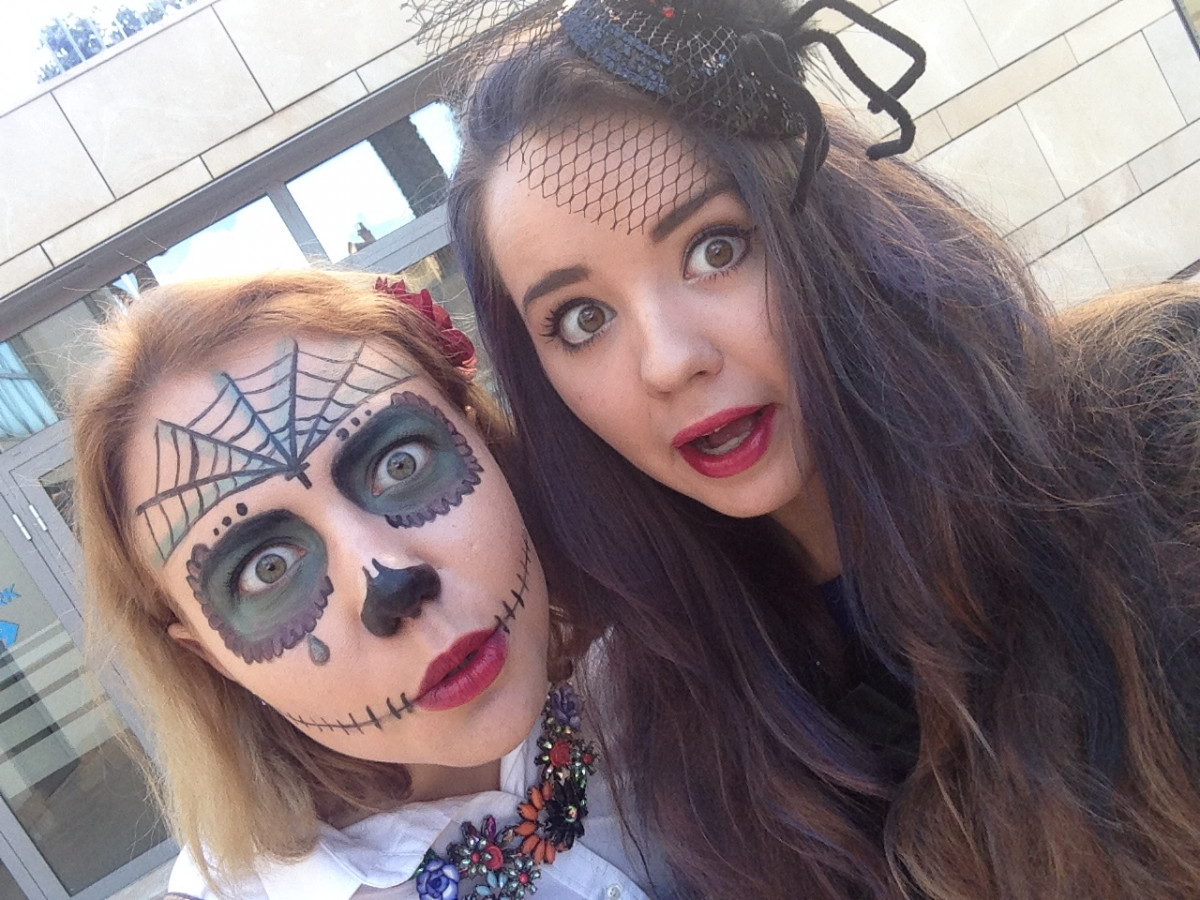
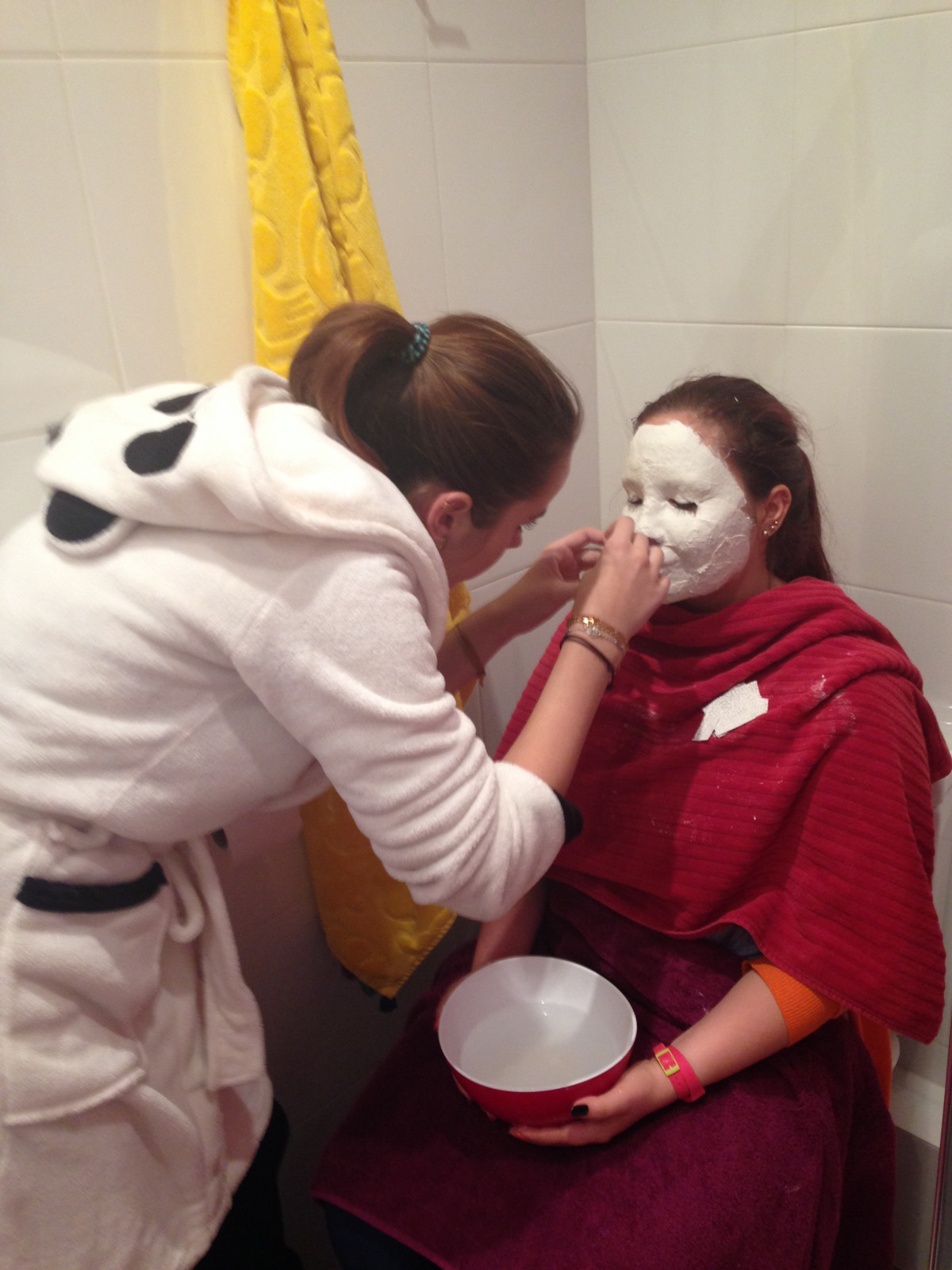
L: How quickly and at what level did you learn Spanish.
P: I came to Spain with zero knowledge of the language, more specifically, I could say “hello” and “goodbye” and this was where my knowledge ended. I also tell a story about my experience of living with Spanish families and how I learned the language, but I can say with confidence that after 3 months of living with a Spanish family, I understood most of what was said and could even answer a lot.
L: Where do most students go after graduation: countries and university level.
P: Most of the students stay in Spain, because most of the students are Spaniards, who are not happy to leave home and move to another country. Quite a large number, especially foreigners, leave for England and enter a variety of universities by rating, starting with Cambridge.
L: Do the students of the school think that in a British school abroad it is more difficult to prepare for a rating British university than in Britain itself.
P: Absolutely not, I believe that Cakston's students have the privilege of going to England, because in England they basically take only 3 subjects, instead of 5 that are taken here, including Spanish. Most of the Caxton College teachers are British who studied at British universities and some of them have even been on the admissions office of universities, which means that they know the requirements of universities and in every sense help and prepare Caxton graduates for further choice and admission to the university.
L: Tell us about your experience of living with a Spanish family. How many of you lived in the family, how far from school, how relationships were built, what language they spoke.
P: When entering college, each student fills out a questionnaire, with the help of which a family is very carefully selected, taking into account all possible desires of the student. For example, the questionnaire contained the following questions: whether the student wants to be the only child in the family, or whether he wants to live with someone else; how to treat pets in the house; whether he wants to live in a house near the school or in an apartment in the city of Valencia.
The distance between Valencia and Pusol, where the school is located, is about 20 km. In Caxton, there are more than 20 buses that pick up children from all parts of Valencia in the morning (that is, they drive around small towns and around Valencia itself) and take them back after school. In the same way, you can get to Pusol by train, the journey takes about half an hour, and from the station to the school you can walk for about ten minutes.
When I first arrived in Spain, I was settled with a girl from Germany, who was a year older than me. The owner was a Spanish woman of about 50 years old and she also had a cat. Arriving with zero Spanish, I certainly didn't expect my "Host mother" to speak exclusively Spanish. Practically, she knew a couple of English words well, and then constantly confused them. So I often heard from her “go to the chicken and eat kitchen.
I confess that the first months were difficult for me: firstly, I had never lived in a strange family before, and secondly, it was difficult to establish a connection when you don’t understand each other. With this, my neighbour helped me a lot, a girl with whom I became very close friends, who knew Spanish and helped me understand our foster mother.
Despite all the difficulties, I believe that this is the most important part of learning a language - getting into the Spanish atmosphere, into the Spanish culture. In 3 months, from scratch, I began to understand people on the street and could explain myself everywhere. And this is not because of my Spanish classes at school, but precisely because of my Spanish family.
Living with a family, you have no choice but to learn the language. Whether you like it or not, the language automatically appears in your head, because every day you hear only this language at home and this is what helped me so quickly get used to in Spain. Of course, after I started speaking elementary Spanish, the Spanish lessons at school helped me a lot, because all the grammar was explained to me there.
L: What did you like most during your studies at Caxton College.
P: I have been studying at Caxton College for 4 years and this year I graduate, I have half a year left, but I already understand that I will terribly miss these 4 years of living here because they flew by too quickly.
In general, the whole experience was and is unforgettable, because it was here that I formed, grew up and understood what I want from life. At the same time, Kakston helped me decide on my future profession and open up new opportunities in myself that I did not even know about. Despite the fact that there are about 2000 of us in college, we are all like one big family, everyone knows and loves each other. The best thing about college is the opportunity to experience so many different cultures because students come from all over the world, learn Spanish, get a British education and just make good friends from all over the world.
If your readers do not understand something and have any other questions, I will be happy to answer. Ask, I will follow your comments))
